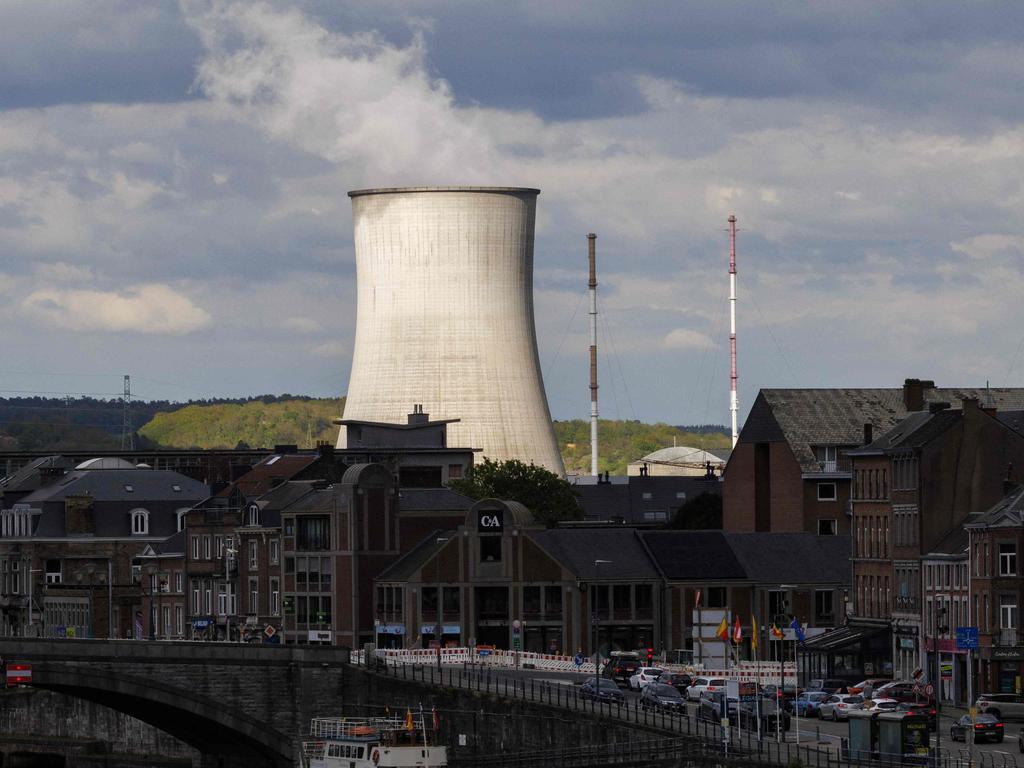
His approach to leadership is one of refusing to die wondering.
He has now staked his leadership and the Coalition’s election prospects on a contest over nuclear power. This is a deliberate act to fundamentally alter the political contest.
It is more than just a debate on the merits or otherwise of nuclear energy. Dutton is seeking a platform on which to rebrand his image as leader and reshape the Coalition purpose.
The politics of the voice proved that Dutton’s oppositionist approach was right. But it didn’t come without a cost: the re-enforcement of negativity. Dutton now seeks to elevate the contest to one of leadership, using energy and the nuclear option as the demonstration of vision.
This is Dutton now fighting for something, rather than against, and in a space which defines one of the central cost-of-living pressures.
Dutton has split the climate change debate into a dual question for voters. On one hand, he is seeking a revival of the public debate on realism and ambition. Can Labor meet its climate change targets? And at what cost? On the other, he has wedded the Coalition to a nuclear future. This is a stark contrast in policy approach to the energy and climate change problem.
There is no Labor version of what Dutton is offering that Anthony Albanese can adopt. There are now two defined paths, both leading to net zero by 2050.
The central contest is one of cost and credibility. The appeal underlying Dutton’s approach is a cost-of-living argument on energy. There is no doubting the significance of Dutton’s approach, politically and from a policy reformation.
The only comparable energy infrastructure transformation is the Snowy Hydro Scheme.
The nuclear argument, however, requires two fundamental principles to be overturned. The first is the obvious; tearing up Australia’s nuclear ban. The Labor states have already taken up the cudgels. Dutton is right that a federal mandate would ultimately defeat provincial opposition.
The second is the ownership structure. Dutton’s plan for commonwealth ownership challenges the Liberal Party’s broader market-based principles.
This is where Dutton has surprised, in demonstrating pragmatism over orthodoxy. The approach is based on a simple truth that many people believe that it was a mistake by state governments to privatise electricity assets. Much of this was pursued under Labor state governments.
Regarded as an essential service, many consumers often wrongly equate price increases to corporate greed, in the same way they equate inefficiency with government.
This is another important step in Dutton’s socialisation of nuclear power generation as a real option. He will argue that off-budget assets that provide a return on capital is not nationalisation.
Dutton is, however, exposed on the question of cost and his refusal to so far outline the investment required. Again, he is happy to have the argument, but at a time of his choosing. His strategy is to drip feed a low-knowledge electorate when it comes to nuclear.
Wednesday’s announcement was about confining the debate around the kitchen table to locations. A re-assurance that reactors weren’t going to be popping up in suburban backyards. Dutton believes that the broader macro-politics favours him on this issue.
At worst, the politics aren’t as electorally good or bad as either side may argue. While there are obvious political risks for Dutton, Albanese is risk-exposed on how Labor takes this argument on.

The more hysterical the Prime Minister and his colleagues are inclined to become, the more he is lured into presenting as an opposition leader rather than a prime minister. His personal approval ratings, and only marginal favourability over Dutton in the polls, will have alerted him to the danger of this.
The electoral interpretation of the nuclear option is also not as controversial as some may believe.
Voters like visionary leaders, even if they don’t necessarily agree with the vision. And on nuclear, people are nowhere near as hung up about it as they once were.
Political observers may wonder why Dutton’s has chosen to announce this ahead of the final parliamentary sitting fortnight before the winter break, given it lets Albanese off the hook on the immigration disaster that dominated the last sitting fortnight.
Senior Liberals believe that it is the opposition that has been setting the political agenda since the budget, and this needs to be maintained. However, this is a misreading of the politics and reveals the risk that Dutton is now taking on.
It has been events, rather than the Coalition, that have been driving the political agenda. And it has been the mismanagement of those events by Albanese and Labor that has got the government in strife.
Dutton has expertly exploited every opportunity, but then this is more a case of smart politics than defining the national policy agenda. And as Bill Shorten proved in 2019, having an agenda in opposition isn’t always a good thing.








Peter Dutton has taken the courageous path in a debate that history has proven offers no clear political victor.